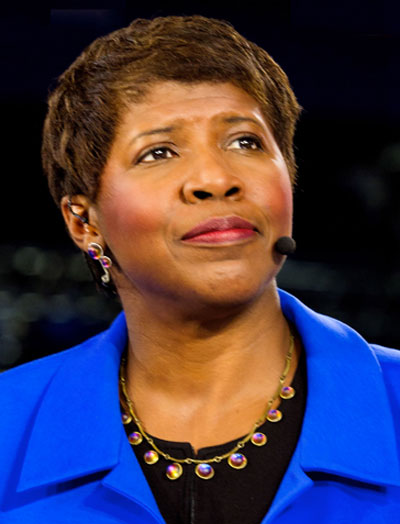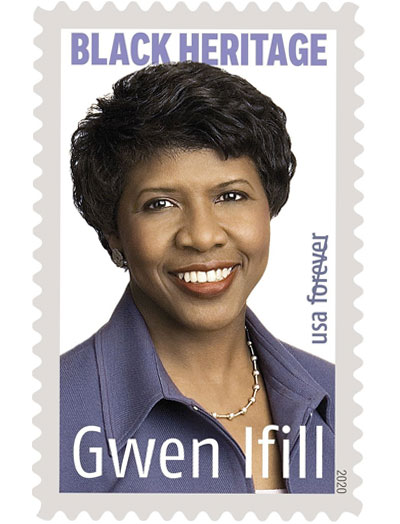DAY-10: MEDIA PART 3 – MEDIA IN FLUX, THE BLACK EXPLOSION
Just as Black runway divas were changing the face of fashion, our radios and television sets were experiencing a dramatic cultural shift. Black radio proceeded the risks that magazines and other printed materials were taking, prominently showcasing African American images. During the 1920s, radio was the most popular medium of mass communication, and people didn’t have to buy a subscription. Black people could tune the dial and hear music, sports, or other shows contemporary to the times. Of course, initial content was limited to White people portraying Black People. But in the late 20s, early 30s, Black programming began to arise. It wasn’t long before Blacks started to produce and own radio shows and stations.
One such station in Chicago, WSBC, featured radio’s first Black announcer, Jack L. Cooper. Over the next few decades, Black radio programming began to thrive. Black radio and individuals such as Richard Durham, and Jack Gibson, changed the narrative regarding Blacks’ portrayal and their issues. Now they could speak directly to their culture and continue to push the envelope regarding content sensitive to African Americans.
By the 50s and 60s, Black sitcoms or shows with Black-lead characters were gracing our black and white T.V. screens. Shows like the Good Times or George Jefferson became household names. Some criticized the progress saying that it was still minstrelsy–blacks dancing around and making fools of themselves. But others called it genius, saying they used comedy to bring the Black experience to life, allowing people to laugh while they healed.
Either way, the influx of Black movies and sitcoms opened the door for more mainstream Black exposure. Soon Black journalist and talk show host were making their mark, paving the way for a young girl from Kosciusko, Mississippi–Oprah Winfrey–to rise to the pinnacle of broadcast media. As Don King once said, “Only in America.”
We have chosen to celebrate a select few media pioneers for their determination to change Black perception and thus change the landscape and future our country. Today we honor their genius. We must not let their contributions be forgotten or let others bask in the credit of their achievements. Today let’s change the narrative. #LET THE TRUTH BE TOLD.
“The Early Years of Black Radio”
Radio was the most popular form of mass-communication.
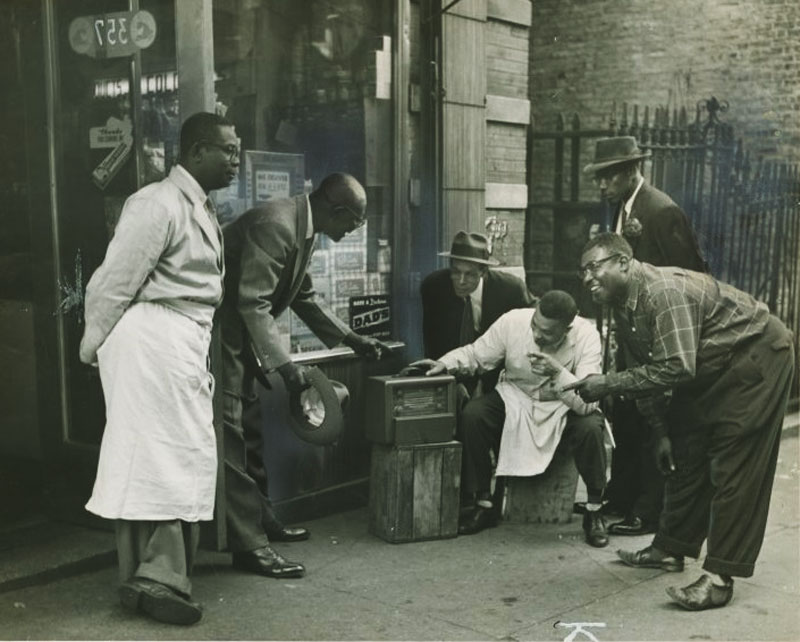
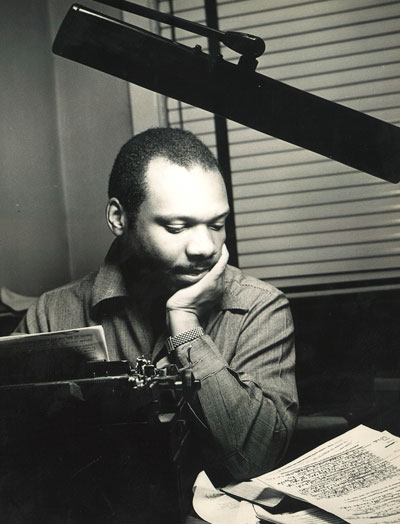
Richard Dunham Black Programming Pioneer
Creator of Destination Freedom.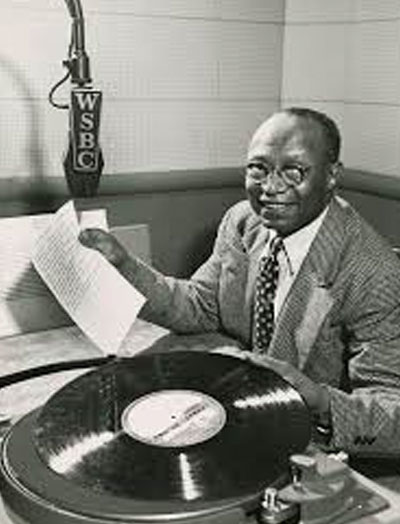
Jack L. Cooper, Widely accepted at the First Black
Disc Jockey/Radio Announcer
Richard Durham was born in rural Mississippi on September 6, 1917 and moved to Chicago with his family at the age of six. He would go on to write and produce the groundbreaking Destination Freedom, a radio drama that featured characters calling for equality a decade before the Civil Rights Movement.
During the Depression, Durham found work in the radio division of the WPA-sponsored Illinois Writers Project. He wrote for several local shows in the early 1940s and also worked as an editor and journalist for the black-owned Chicago Defender newspaper and Ebony magazine.
After the war, Durham wrote for a weekly drama on WBBM/Chicago called Democracy USA and created the first soap opera focused on an African American family, Here Comes Tomorrow, for WJJD/Chicago.
Richard used the term “universal people” and he felt that the struggle of Blacks was so similar to the struggles of people all over the world who were exploited, and oppressed.
CLARICE DAVIS DURHAM
Jack L. Cooper is widely acknowledged as the first African American radio broadcaster. Cooper, born in Memphis, Tennessee on September 18, 1888, was the youngest of 10 children. He was raised in a poor, single-parent home, and, at the age of 10, quit school and moved to Cincinnati, Ohio to work at a racetrack. Aside from his work at the racetrack, Cooper worked a number of odd jobs as a teen and was a successful boxer, winning the Ohio Negro welterweight title in the late 1910s. Cooper began his entertainment career as a dancer and comic on the Theater Owners Booking Association, a popular African American vaudeville circuit in the 1920s and 1930s. Here he met his first wife, Estelle Mansfield (Madam Lamar) Cooper, and they created the Cooper and Lamar Music Company.
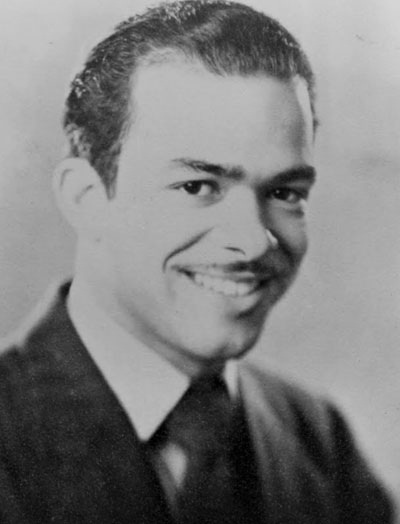
Jack Gibson, Owned and operated First Black
Radio Station, W.E.R.D, in Atlanta GA.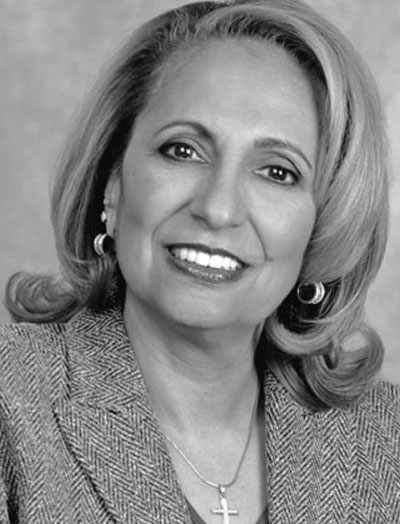
Cathy Hughes, Owned Urban One, the largest
Black owned Media company in the US.
First Black owned and operated radio station W.E.R.D, located in Atlanta GA.
Cathy Hughes is the founder and chairperson of Urban One, Inc., (previously known as Radio One) the largest African-American owned and operated broadcast-company in the nation. In 2011, the corporation owned 53 broadcast stations in 16 urban markets across the United States. Urban One is the parent corporation of TV One, a partnership with Comcast, and Syndication One. It is the media home of a number of radio personalities and programs popular in the African-American consumer market including Rev. Al Sharpton, Yolanda Adams, Russ Parr, Rickey Smiley, Lonnie Hunter and CoCo Brother.
Urban One is the parent company of Reach Media, which is the home of the Tom Joyner Morning Show, Music One which hosts Harpist Jeff Majors, and Interactive One, an online network which hosts Black Planet, NewsOne, and Hello Beautiful. Urban One, Inc, also markets and distributes CD’s and DVD’s. Urban One shares other firsts as well. It is the first African-American company in radio history to dominate several major markets simultaneously. It is also the first woman-owned radio station to rank #1 in any major market.
Jack the Rapper (Jack Gibson) helped open the first African-American-owned radio station in the United States, WERD in Atlanta, Georgia, in 1949. Gibson learned about radio while working as a gofer for deejay Al Benson in Chicago. He learned even more while at WERD, where he discovered that a white disc jockey received twice the amount of payola (in the form of “consulting fees”) from record labels that he got. After all, he was told, he was black and attracted black listeners, whereas the white deejay drew both black and white listeners.
From Atlanta, Gibson moved on to Louisville, Kentucky, where he called himself Jockey Jack and wore jockey silks as a play on the name of his chosen profession. Later he became Jack the Rapper, a nickname he maintained through several stations and into his own business as publisher of Jack the Rapper, a radio industry publication, and as a producer of radio and music business conferences.
“Local Radio Pioneer”
RON DAVENPORT, LAWYER LL.M., PROFESSOR, MEDIA MOGUL
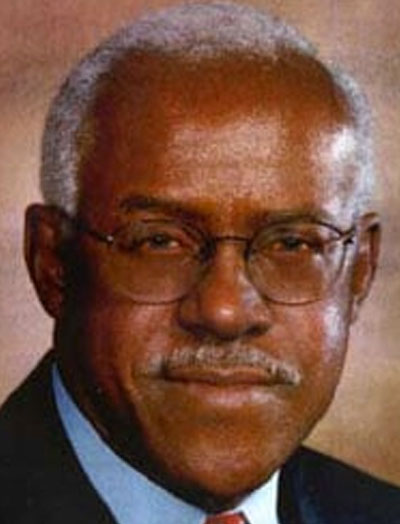
Ron Davenport, Law professor and owner of
the Sheridan Broadcasting Company.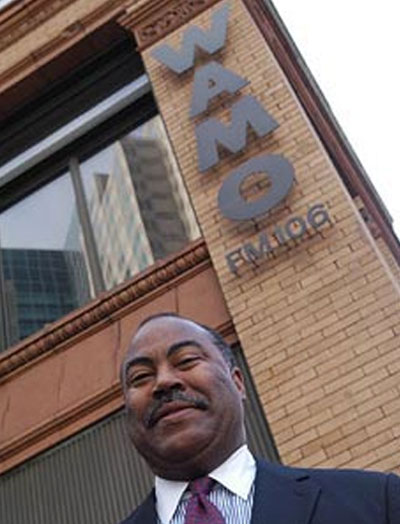
Ron Davenport in front of W.A.M.O radio station
in Pittsburgh, PA
Businessman and lawyer Ronald Davenport, Sr., was born in Philadelphia, Pennsylvania, on May 21, 1936. After earning his B.S. degree in economics from Pennsylvania State University in 1958, Davenport went to law school; earning his LL.B. degree from Temple University in 1962, he went to Yale Law School for his LL.M. degree in 1963.
Davenport started his career as a professor of law at Duquesne University in 1963, where he remained for twenty years. When he took over as dean of the law school in 1970, Davenport became the first black man to be dean of a predominantly white school. In 1982, Davenport became a partner at Buchanan Ingersoll Professional Corporation, and a fellow of the U.S. State Department, reviewing legal systems in South and East Asia. Davenport also served as a consultant to the Constitutional Convention Preparatory Committee of Pennsylvania, and the Pennsylvania Constitutional Convention.
Not content with simply the practice of law, in 1972, Davenport became chairman of Sheridan Broadcasting Corporation, a group he and his wife formed from the purchase of four radio stations. By 1976, Sheridan Broadcasting owned half of the Mutual Black Network, later completing the buyout. Sheridan Broadcasting was heard through more than three hundred radio affiliates across the country; he also served as the co-chairman of the American Urban Radio Networks.
“Black JournAlism”
FROM RADIO TO TELEVISION, “SEEING IS BELIEVING”
PBS-TV journalist Gwen Ifill was born on September 29, 1955 in New York, New York to her parents, O. Urcille Ifill, Sr., an African Methodist Episcopal minister who hailed from Panama, and her mother, Eleanor Husbands from Barbados. Her father’s ministry required the family to live in several cities in different church parsonages throughout New England including Pennsylvania, Massachusetts and New York, where the family resided in federally subsidized housing. Ifill’s interest in journalism was rooted in her parents’ insistence that their children gather nightly in front of the television to watch the national news.
In 1973, Ifill graduated from Classical High School in Springfield, Massachusetts. Four years later, she received her B.A. degree in communications from Simmons College in Boston. During her senior year, she interned at the Boston Herald American newspaper.
Born on September 29, 1955, Gwendolyn was a trailblazer American journalist, television newscaster, and author. In 1999, she became the first woman of African descent to host a nationally televised U.S. public affairs program with Washington Week in Review. She was the moderator and managing editor of Washington Week and co-anchor and co-managing editor, with Judy Woodruff, of the PBS NewsHour. Ifill was a political analyst and moderated the 2004 and 2008 vice-presidential debates. She authored the best-selling book The Breakthrough: Politics and Race in the Age of Obama.
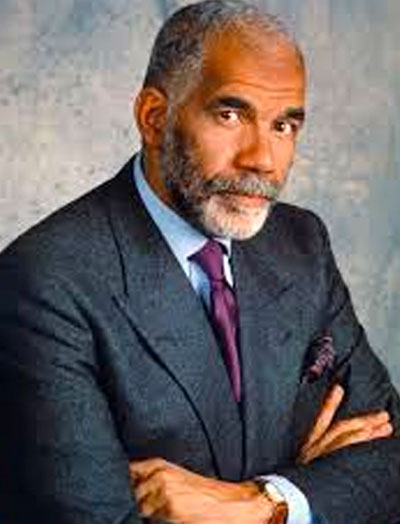
Ed Bradley 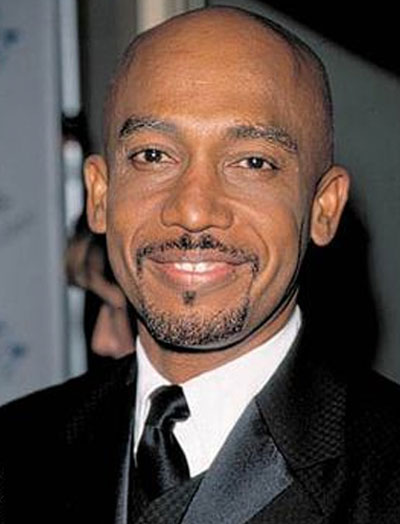
Montel Williams
In the fall of 1991 Montel Williams joined the ranks of America’s daytime talk show hosts with his own program, the Montel Williams Show. Though he had great success in the past as a motivational speaker, few people believed that this former U.S. Navy intelligence officer would be ranked in the company of talk show celebrities Phil Donahue, Oprah Winfrey, and Sally Jessy Raphael. Yet, after only one year, his show was being broadcast to 80 percent of the television sets in America and in certain markets was getting a higher rating than Donahue.
Edward Rudolph Bradley Jr., journalist, was born June 22, 1941, in Philadelphia. His father was a businessman and his mother a housewife. After Bradley’s parents divorced, he spent summers with his father in Detroit. He attended primary and secondary school in Philadelphia. In 1960 he attended Cheyney University of Pennsylvania and played defensive end and offensive tackle on the football team. After earning a degree in 1964 in education, Bradley taught sixth grade. He also worked nights at WDAS-FM radio in Philadelphia as a jazz disc jockey and basketball play-by-play announcer.
His first reporting assignment included the north Philadelphia riot in 1964. In 1967, WCBS Radio, an all-news station in New York City, hired Bradley. In 1971, Bradley moved to Paris and became a stringer (freelance reporter) for CBS News. Four years later he became a reporter at the CBS Washington bureau, covering Jimmy Carter’s presidential campaign.
In 1976 Bradley was the first African American reporter at CBS to serve as a White House correspondent and anchor the station’s Sunday evening news program. In 1978 Bradley became a correspondent for “CBS Reports,” reporting from Cambodia, China, Malaysia, and Saudi Arabia.
“The Pinnacle of the Media World”
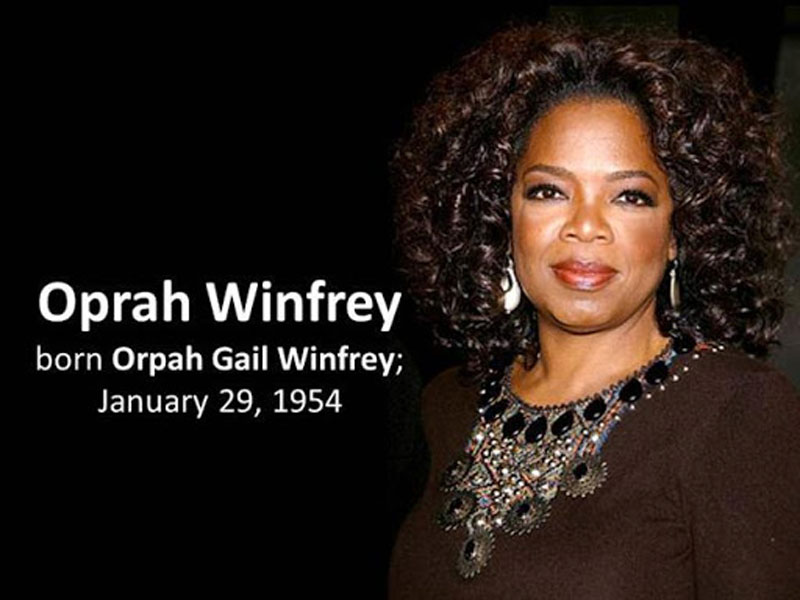
Oprah Winfrey is a talk show host, media executive, actress and billionaire philanthropist. She’s best known for being the host of her own, wildly popular program, The Oprah Winfrey Show, which aired for 25 seasons, from 1986 to 2011. In 2011, Winfrey launched her own TV network, the Oprah Winfrey Network (OWN).
Born in the rural town of Kosciusko, Mississippi, Winfrey moved to Baltimore in 1976, where she hosted People Are Talking. Afterward, she was recruited by a Chicago TV station to host her own morning show. Read More.
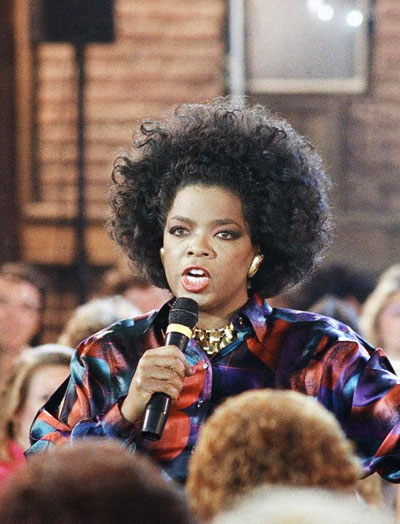
Oprah Winfrey Talk-Show Host and Journalist 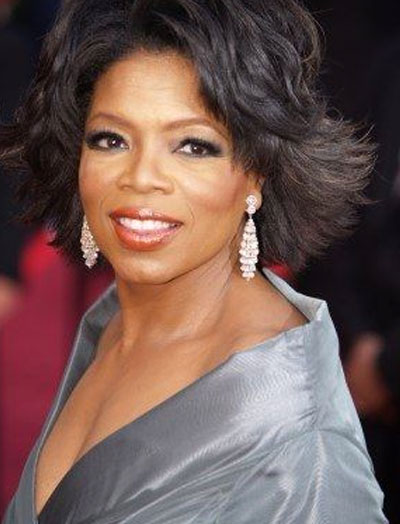
Oprah Williams Philanthropist
After Winfrey graduated, WJZ-TV in Baltimore, Maryland, scheduled her to do the local news updates, called cut-ins, during Good Morning, America, and soon she was moved to the morning talk show Baltimore Is Talking with cohost Richard Sher. After seven years on the show, the general manager of WLS-TV, American Broadcasting Company’s (ABC) Chicago affiliate, saw Winfrey in an audition tape sent in by her producer, Debra DiMaio. At the time her ratings in Baltimore were better than Phil Donahue’s, a national talk-show host, and she and DiMaio were hired.
Winfrey moved to Chicago, Illinois, in January 1984 and took over as anchor on A.M. Chicago, a morning talk show that was consistently last in the ratings. She changed the emphasis of the show from traditional women’s issues to current and controversial (debatable) topics, and after one month the show was even with Donahue’s program. Three months later it had inched ahead. In September 1985 the program, renamed the Oprah Winfrey Show, was expanded to one hour. As a result, Donahue moved to New York City.
In 1985 Quincy Jones (1933–) saw Winfrey on television and thought she would make a fine actress in a movie he was coproducing with director Steven Spielberg (1946–). The film was based on the Alice Walker (1944–) novel The Color Purple. Her only acting experience until then had been in a one-woman show, The History of Black Women Through Drama and Song, which she performed during an African American theater festival in 1978. Read More.
“Presidential medal of Freedom”
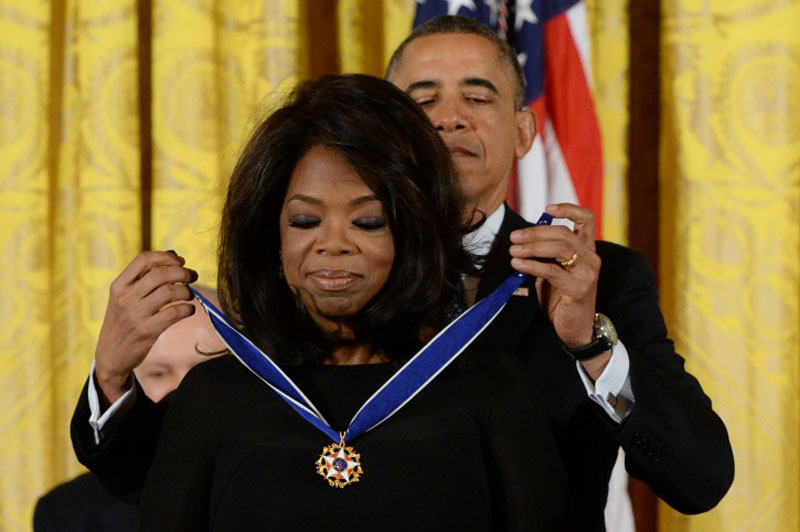
The popularity of Winfrey’s show skyrocketed after the success of The Color Purple, and in September 1985 the distributor King World bought the syndication rights (the rights to distribute a television program) to air the program in one hundred thirty-eight cities, a record for first-time syndication. That year, although Donahue was being aired on two hundred stations, Winfrey won her time slot by 31 percent, drew twice the Chicago audience as Donahue, and carried the top ten markets in the United States.
In 1986 Winfrey received a special award from the Chicago Academy for the Arts for unique contributions to the city’s artistic community and was named Woman of Achievement by the National Organization of Women. The Oprah Winfrey Show won several Emmys for Best Talk Show, and Winfrey was honored as Best Talk Show Host.
When you undervalue what you do, the world will undervalue who you are.”
OPRAH WINFREY
Content provided courtesy of History.com, Britannica.com and Wikipedia.com, Biographies.com, Blackpast.com, notablebiographies.com, and artsandculture.google.com. All Rights Reserved.


